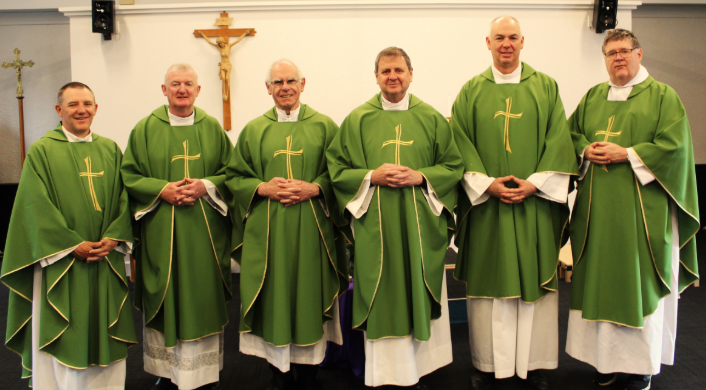17 Nov 2024 | Church in NZ
Pastoral Letter on Occasion of the Prime Minister’s Apology to Victims and Survivors of Abuse in Care
Dear Brothers and Sisters in Christ,
Earlier this week, we bishops gathered together and listened as the Prime Minister apologised to those who suffered abuse in state and faith-based care. It was an important moment in our nation’s history.
Many of you have told us of the horror, grief and outrage you felt as you read the Royal Commission’s report and survivors’ accounts of abuse and the scale of that abuse. The sins and the crimes of our people – priests, religious and lay – working in Catholic settings fill us all with shame.
In addition to reading these accounts, we have also met with many survivors. They have shared their personal accounts and have told us of the catastrophic impact of the abuse they suffered. They have told us how the response of Church leaders was often inadequate, inappropriate and, in many cases, added to their grief and trauma.
In this week of apology, we renew our sincere and unconditional apology to victims of abuse in the Catholic Church. We do so knowing that words alone can never replace what was stolen and can never fully restore that which was destroyed.
We cannot change the past, but we can shape our future. Survivors, and many of you, have demanded that the Church has an unwavering commitment to ensuring the safety of children, young people and others who are vulnerable in our Church community.
Again, many of you have asked that we work with survivors. We assure you of our ongoing commitment to do this. In meeting with and listening to survivors, we are learning much from them. We honour them for their courage.
We are continuing to reflect on the lessons of the Royal Commission. At the same time, we acknowledge the burden you feel as members of a Church within which so many people were harmed. You have told us how the impact of abuse has strained or broken relationships. You have shared how your faith has been tested by seeing people who claimed to serve God revealed as abusers.
The readings at Mass today speak of “shame and everlasting disgrace”. But they also speak of the hope we share, a fruit of our faith in God. Starting from the place of shame and disgrace, but emboldened by hope, we as the faith community must continue working to ensure that history does not repeat itself.
Over the past three decades we have made significant changes to our procedures and protocols. We have become more aware of the warning signs of abuse. We know that some earlier responses and solutions were ill-advised and had devastating consequences. We recognise that the police are best placed to investigate criminal allegations. We are striving to create better opportunities to assist those who have been harmed. We have learnt that safeguarding is everyone’s responsibility.
We are guided by the words of Pope Francis: “Looking back to the past, no effort to beg pardon and to seek to repair the harm done will ever be sufficient. Looking ahead to the future, no effort must be spared to create a culture able to prevent such situations from happening, but also to prevent the possibility of their being covered up and perpetuated.”
May the Lord strengthen and guide us, to ensure we care for those harmed within the Church and create and maintain safe environments for all.
Yours sincerely in Christ,
✠ Stephen Lowe, Bishop of Auckland, NZCBC President
✠ Michael Dooley, Bishop of Dunedin, NZCBC Vice President
✠ Paul Martin SM, Archbishop of Wellington, NZCBC Secretary
✠ Michael Gielen, Bishop of Christchurch
✠ John Adams, Bishop of Palmerston North
✠ Richard Laurenson, Bishop of Hamilton
Find out more about the Church’s work to nurture a culture of Safeguarding at www.safeguarding.catholic.org.nz/
On this site you can also find a pathway to share your story or make a formal complaint about abuse within the Church community, with the National Office for Professional Standards.
At Masses on November 16/17, parishes also led a Litany of Lament, a specific type of prayer that can channel our anger and rekindle our thirst for justice in an unjust world.
